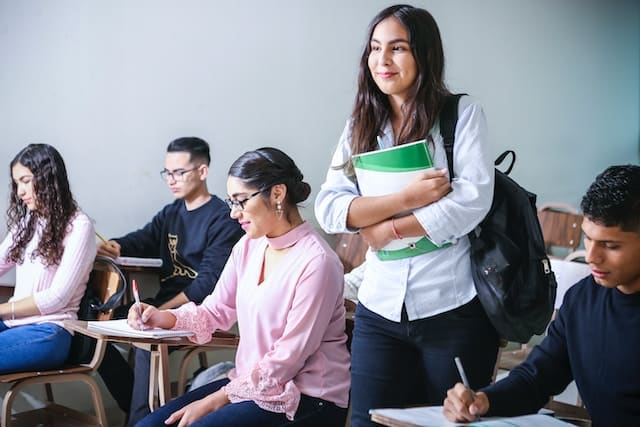US announces important changes for student visa policy
- International students with plans to study in the US will likely soon have to pay higher visa processing fees
- US consular officers evaluating students’ visa applications are being asked to keep in mind students’ relatively lower ability to prove they intend to return to their home country after their visa expires
- The in-person interview for many international student applicants will be waived through 2022
Today we’re reporting on policy changes in the US that will affect international students going to the country in the coming year. These include a planned hike in visa application fees, a change in consular guidance for the evaluation of students’ visa applications, and an extension of the in-person interview waiver for some student applicants.
Applying for a visa is likely to become more expensive
International students with plans to study in the US can expect to pay higher visa processing fees in the future, according to a proposal from the State Department.
The draft rule proposes that F, M, and J visas be subject to application fees of USD$245, a 53% increase from the current USD$160 that students must pay. The fee hike is intended to better reflect the cost of processing visas by American consular officials. The draft rule is open for comment from the public until 28 February 2022.
Consular officials will be given more discretion
In a departure from policies under former President Trump, US consular officials will be given more latitude in determining students’ intentions for coming to the US, which may lead to fewer students being denied visas to study in the country.
Under the previous US administration, students were strictly evaluated according to “residency requirements” to ascertain their ties to their home country and likelihood to leave promptly after their programmes in the US rather than attempt to stay and work. This posed problems for some students who had weaker proof of “residence abroad” given their lower age, lower likelihood of owning property or being married, and limited (if any) work experience in their home country compared with other visa applicants.
In fact, Karin Fisher writes for the Chronicle of Higher Education that,
“Prior to the pandemic, about a quarter of all student-visa applications were denied. In nine out of 10 non-immigrant visa denials, the reason cited is applicant intent.”
Now, consular officials are being directed to adjudicate students’ applications “based on present intent – not on contingencies of what might happen in the future, after a lengthy period of study in the United States.” Consular officials are still required to distinguish between students who intend to leave after studies and those who are primarily motivated by a desire to stay in the US permanently. However, they are being told to make this judgment based on the student’s intention “to return to reside with parents or guardians” rather than on more stringent residency requirements.
While this represents a relaxing of visa applications evaluation processes, some, including NAFSA and American Council of Education executives, believe it does not go far enough. They reason that it is normal and fitting for some international students to want to both study and then remain in the US after studies – and that allowing talented international students to declare upfront their “dual intent” would, in fact, be in keeping with President Biden’s stated goal of encouraging the most talented international students and skilled foreign workers to remain in the US.
Early last year, Senator Bob Menendez and Representative Linda Sanchez proposed the US Citizenship Act of 2021 to allow F visa students to declare “dual purpose” and to make it easier for international students in STEM programmes to remain in the US after completing their studies. But according to Ms Fisher, this immigration reform bill has stalled.
Sam Peak, an immigration policy analyst at Americans for Prosperity, told Ms Fisher that the new State Department procedural update (providing more discretion for consular officials in evaluating students’ visa applications) wasn’t as “‘far-reaching’ as a dual-intent legislative fix [it is] ‘a welcome restoration to the pre-Trump era.’”
Waiver for in-person interviews
And finally, the State Department has also announced that it is extending consular officers’ current ability to waive in-person interviews for F, M, and J students until the end of 2022. This decision comes in light of “profound reductions in the Department’s visa processing capacity” and is intended to reduce visa processing wait times for international students.
However, the State Department also notes,
“Embassies and consulates may still require an in-person interview on a case-by-case basis and dependent upon local conditions. We encourage applicants to check embassy and consulate websites for more detailed information about this development, as well as current operating status and services.”
For additional background, please see:













